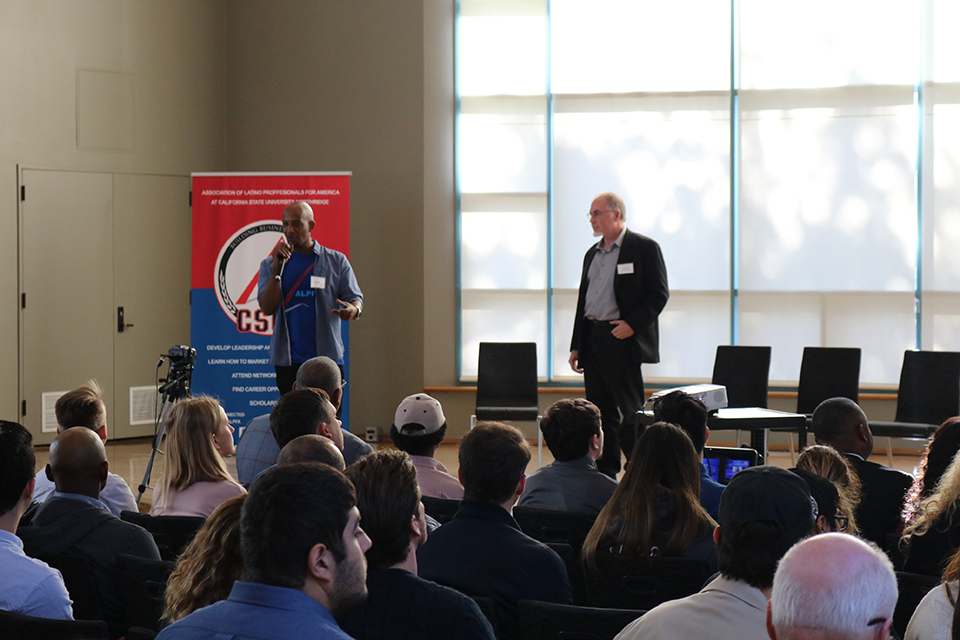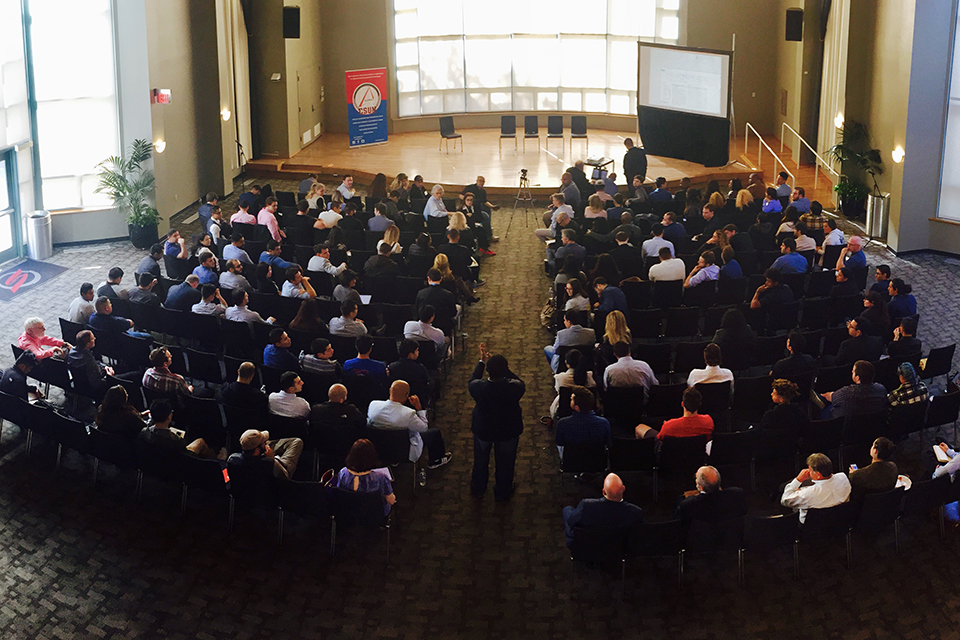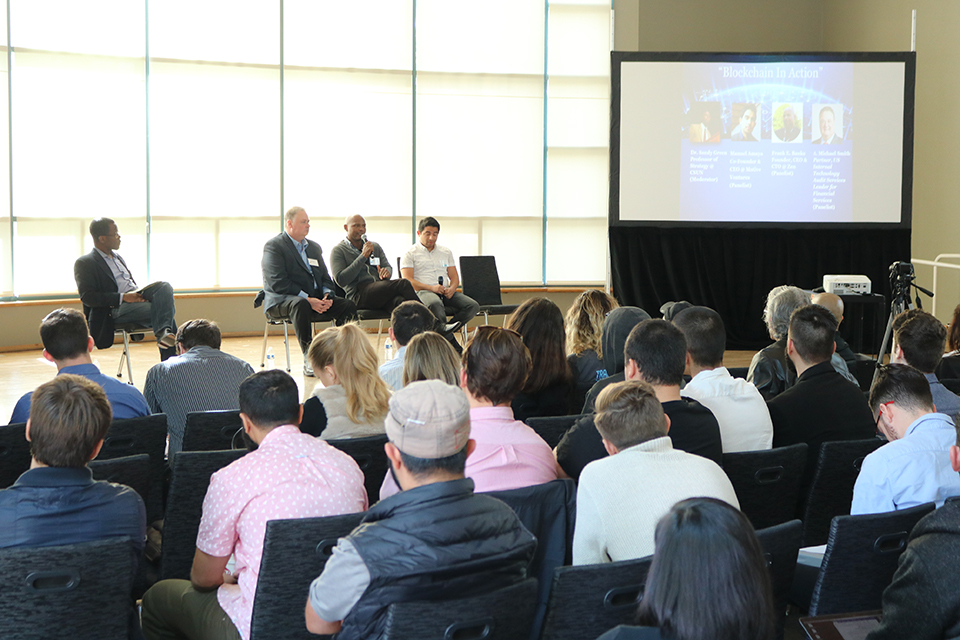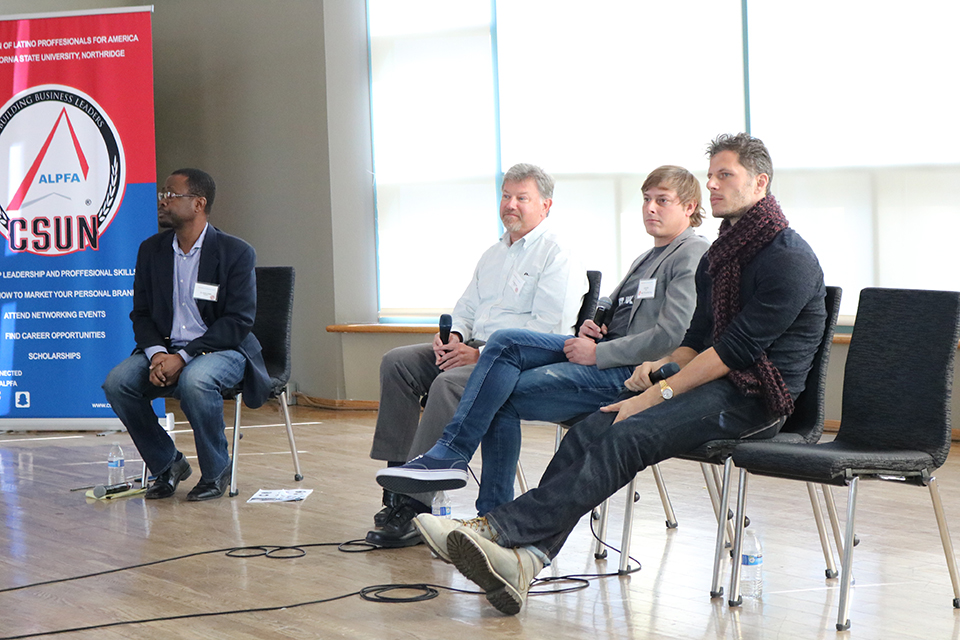CSUN Hosts Summit to Help Public Understand “Cryptocurrencies” and Blockchain
One summer night in 2017, accounting and finance student Alula Zeryihun and his friends were sitting around a bonfire when the topic of Bitcoin and “cryptocurrencies” came up. The students had so many questions: What is cryptocurrency? What is Bitcoin? Is it a legitimate currency? Zeryihun thought to himself: “We need to educate ourselves on this topic. We need to gather experts and have a discussion about cryptocurrencies and how they work.”
Crytpocurrencies are digital tokens, housed online, that can be bought and sold anonymously. Perhaps the most famous example is Bitcoin, which has been generating a lot of buzz in the media for many reasons — chiefly because its price skyrocketed 900 percent over the past year. But what exactly is it? The New York Times writer Nathaniel Popper defines cryptocurrency as a decentralized “digital token — with no physical backing — that can be sent electronically from one user to another, anywhere in the world.”
Six months after the bonfire, Zeryihun, Santiago Cuevas, Manny Vergara and other members of California State University, Northridge’s student Association of Latino Professionals for America (ALPFA) brought together finance executives, entrepreneurs and professors for the campus’ first-ever Blockchain Summit, Dec. 2 at the CSUN University Student Union Grand Salon.
The summit topic was not just cryptocurrency, but also the underlying technology for cryptocurrencies such as Bitcoin and Ethereum, commonly known as the blockchain. Put simply, the blockchain is like an unchangeable ledger for all cryptocurrency transactions.
“I’ve gotten a lot of counseling from various professors,” Zeryihun said. “Dr. Sandy Green gave us some pretty good tips for how to have a balanced and factual discussion about blockchain. He suggested that we have people on both sides: those who support cryptocurrencies and those who don’t.”
The summit featured a keynote speaker, two panel discussions, and a lunch and networking session during the intermission. Harry Goodnight ’86 (M.S., Computer Mathematics), executive advisor at Sweetbridge, Inc. — a company building a blockchain alliance and designing protocols for commerce, supply chains and interest-free loans — served as the keynote speaker. Goodnight talked about his experience as a CSUN alum and explored concepts such as how the blockchain could be applied to management of supply chain, a connection or network of parties all within the same creation process. For example, the supply chain for a cell phone would include the vendors for design and development, manufacturing and distribution.
The first panel at the summit, “Blockchain in Action,” aimed to educate the audience about how blockchain works. Panelists included partners at established accounting firms and app developers. The panelists explained that blockchain is what prevents double-spending of Bitcoins and explored the pros of the technology, such as the fact that it is a widely verifiable ledger — since it’s on a peer-to-peer network — and cons, such as the fact that most projects have not yet proven to be efficient.
“Initial Coin Offerings, Cryptocurrency and Fiscal Policy,” the second panel at the summit, featured entrepreneurs and CSUN professor James Dow, who served as a skeptic. For example, Dow explained the importance of federal fiscal policy and the risk of investing in cryptocurrencies.
Chris Kline of BitcoinIRA, who was a guest on the second panel, said he was in awe of CSUN students’ level of enthusiasm surrounding cryptocurrencies and blockchain.
“It was an honor to be invited to share in the crypto revolution with the CSUN community,” Kline said. “I left the event thrilled [with] their collective energy towards this global event.”





 experience
experience